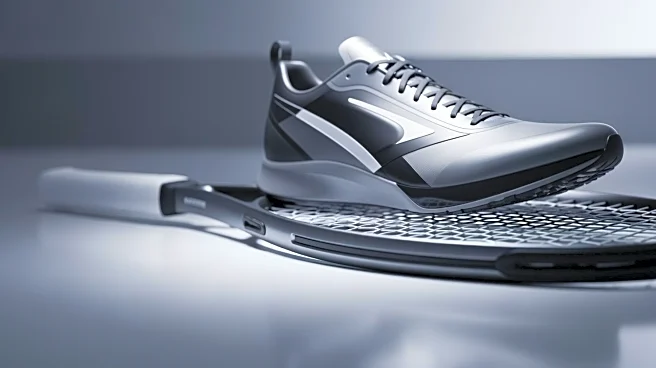What's Happening?
Recent advancements in sports equipment technology have led to the development of intelligent integration, sensor technology, and personalized design, significantly impacting supplier selection processes.
Modern sports equipment now incorporates embedded sensors, real-time feedback, and user-specific adaptability to enhance athletic performance, reduce injury risk, and improve training personalization. This evolution necessitates new decision-making approaches for evaluating suppliers, focusing on innovation capabilities, sensor integration maturity, and human-equipment interaction metrics. Traditional criteria for supplier selection are becoming insufficient, prompting the need for more nuanced evaluation systems.
Why It's Important?
The shift towards intelligent sports equipment represents a paradigm change in the industry, affecting procurement strategies and supplier evaluations. This development enhances athletic performance and safety, offering new opportunities for innovation and market growth. Suppliers capable of integrating advanced technologies and personalized designs are likely to gain competitive advantages, influencing industry standards and consumer expectations. The need for sophisticated decision-making models reflects the complexity and high stakes involved in sports equipment procurement, driving advancements in multi-attribute group decision-making methodologies.
What's Next?
The sports equipment industry will continue to evolve, with ongoing research and development in intelligent integration and sensor technology. Suppliers will need to adapt to these changes, focusing on innovation and technological capabilities to meet market demands. Decision-making models will likely incorporate behavioral and cognitive elements to better reflect real-world procurement scenarios. The industry may see increased collaboration between technology developers and sports organizations to optimize equipment design and functionality.
Beyond the Headlines
The integration of advanced technologies in sports equipment raises ethical and legal considerations regarding data privacy and security. The use of sensors and real-time feedback systems involves collecting and analyzing personal data, necessitating robust data protection measures. Additionally, the focus on personalized design highlights cultural and societal shifts towards individualized consumer experiences, influencing marketing strategies and product development.










